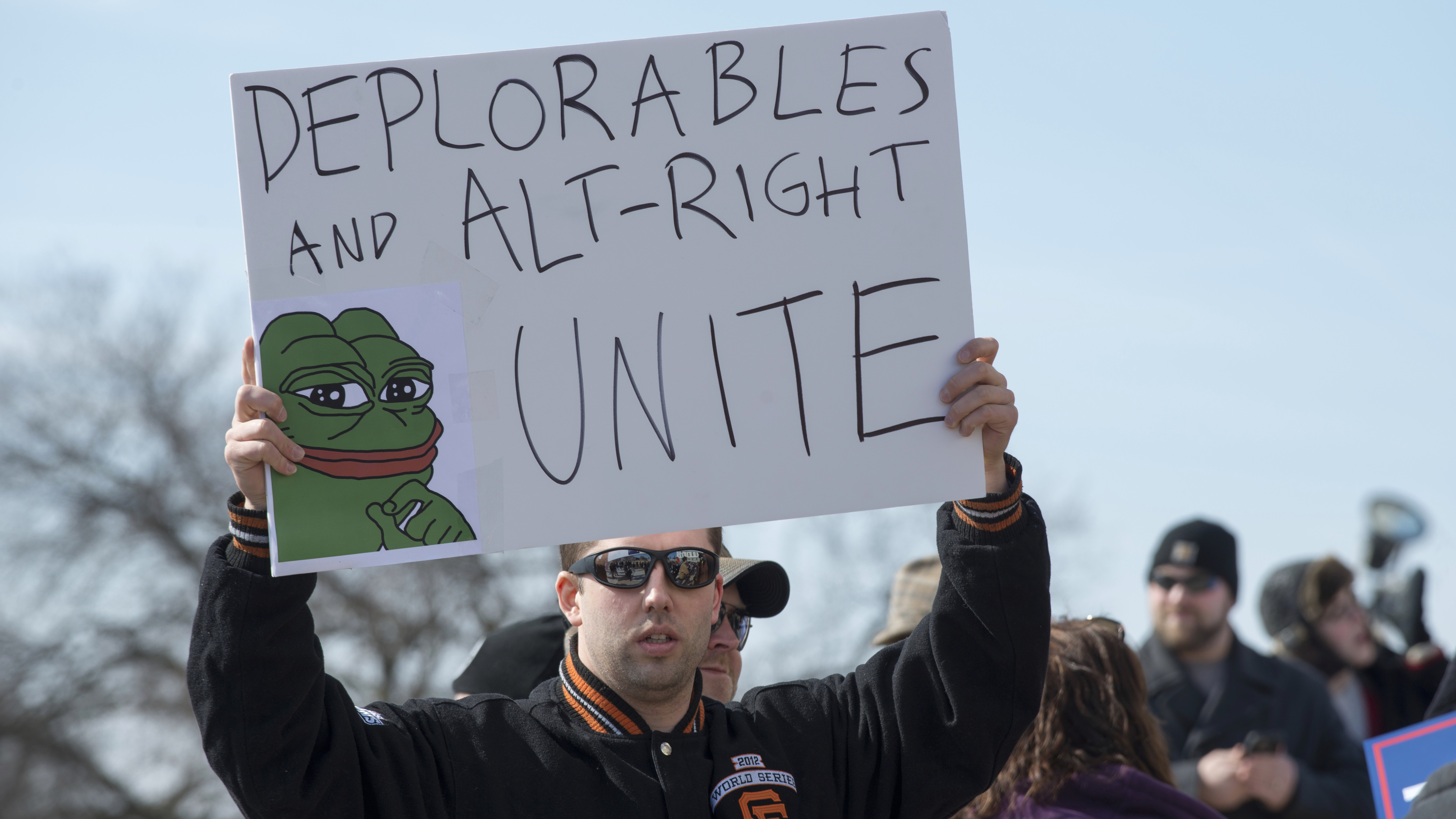It took a couple of tries, but the Southern Baptists just condemned ‘white nationalism’
Supporters and critics of President Donald Trump gathered to protest outside of the Minnesota capitol building on March 4, 2017.
One of the largest religious groups in America just formally denounced racism and white supremacy, and it mentioned the so-called "alt-right" by name.
It took a couple of attempts, but members of the Southern Baptist Convention voted almost unanimously to condemn “white nationalism” in a resolution adopted late Wednesday.
“We know from our Southern Baptist history the effects of the horrific sins of racism and hatred,” the church resolution reads.
“Racism and white supremacy are, sadly, not extinct but present all over the world in various white supremacist movements, sometimes known as ‘white nationalism’ or ‘alt-right.’”
The proposal originally came from Dwight McKissic, a black pastor from Arlington, Texas, and a long-time activist on issues of race within the Southern Baptist Convention.
McKissic wrote a draft resolution published at the end of May on the blog SBC Voices that said the, “toxic menace, self-identified among some of its chief proponents as 'White Nationalism' and the 'Alt-Right,' must be opposed for the totalitarian impulses, xenophobic biases, and bigoted ideologies that infect the minds and actions of its violent disciples.”
The draft proposed by McKissic was apparently too much for some participants at the annual meeting of the church, who declined to discuss the resolution after it was first introduced. That initial delay sparked confusion and anger among some Southern Baptists.
“This started a total tailspin of chaos,” says Emma Green, who writes about religion for The Atlantic Magazine.
Consensus was reached after a late-night meeting that involved setting aside normal procedural rules. A newly drafted proposal was drawn up with some softer language, though it still reflected the driving point from McKissic’s original.
“The leaders of the convention tried to explain this as mostly a procedural mishap,” Green says. “But a number of people pointed out that this reveals the blind spots that can sometimes happen within Southern Baptist life, particularly within its leadership ranks, when there aren’t people of diverse backgrounds who are making decisions.”
“This really revealed fracture lines within the Southern Baptist Convention over racial divisions that are going to continue beyond any resolution,” Green adds.
In his draft resolution, for example, McKissic had mentioned “the curse of Ham,” a religious teaching based on the Bible that was used by Baptists and other Christians to offer theological justification for owning slaves of African descent and, decades later, for racial segregation.
“The Southern Baptist Convention is a denomination that was explicitly founded to support slavery. It split off from other denominations, because the leaders of the nascent movement wanted to be able to hold slaves,” Green says. “The [SBC] has been wrestling with that history ever since the Civil War.”
Southern Baptists have taken steps toward reckoning with their troubled past.
In 1995, the church passed a resolution that apologized to African Americans for the church’s support of slavery. In 2015, the SBC officially called for racial reconciliation. And last year, it called on all Christians to stop flying the Confederate flag.
The “curse of Ham” has been repudiated, Green says. But the church removed specific mention of the old teaching in the resolution that it passed on racism this week.
Pastor McKissic said he was happy with the final version of the resolution that passed.
Other pastors spoke out forcefully in support of the resolution, including Russel Moore of the Ethics and Religious Liberty Commission of the church.
“This resolution has a number on it. It’s resolution number 10,” said Moore. “The white supremacy it opposes also has a number on it. It’s ‘666.’”
Our coverage reaches millions each week, but only a small fraction of listeners contribute to sustain our program. We still need 224 more people to donate $100 or $10/monthly to unlock our $67,000 match. Will you help us get there today?
